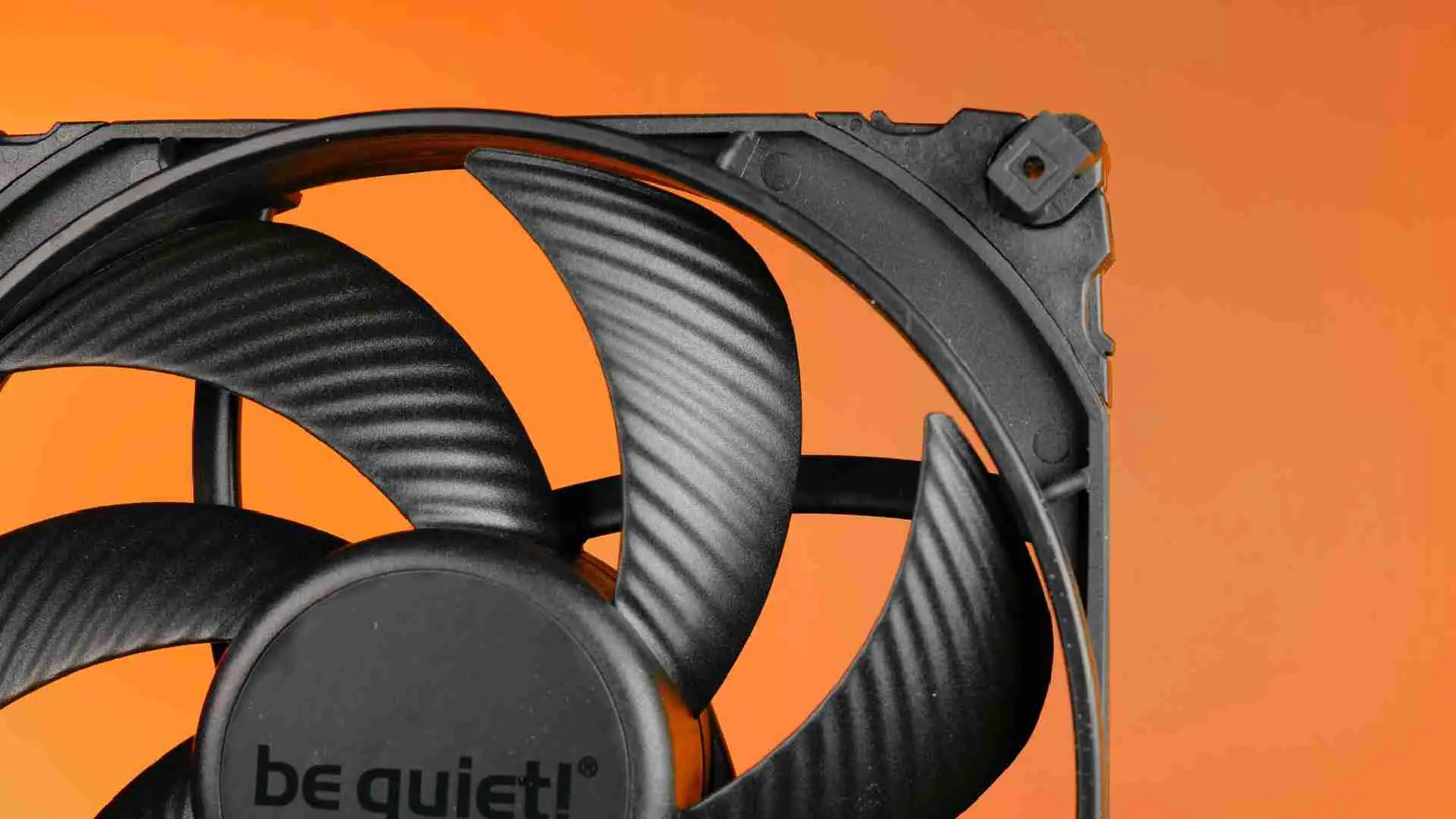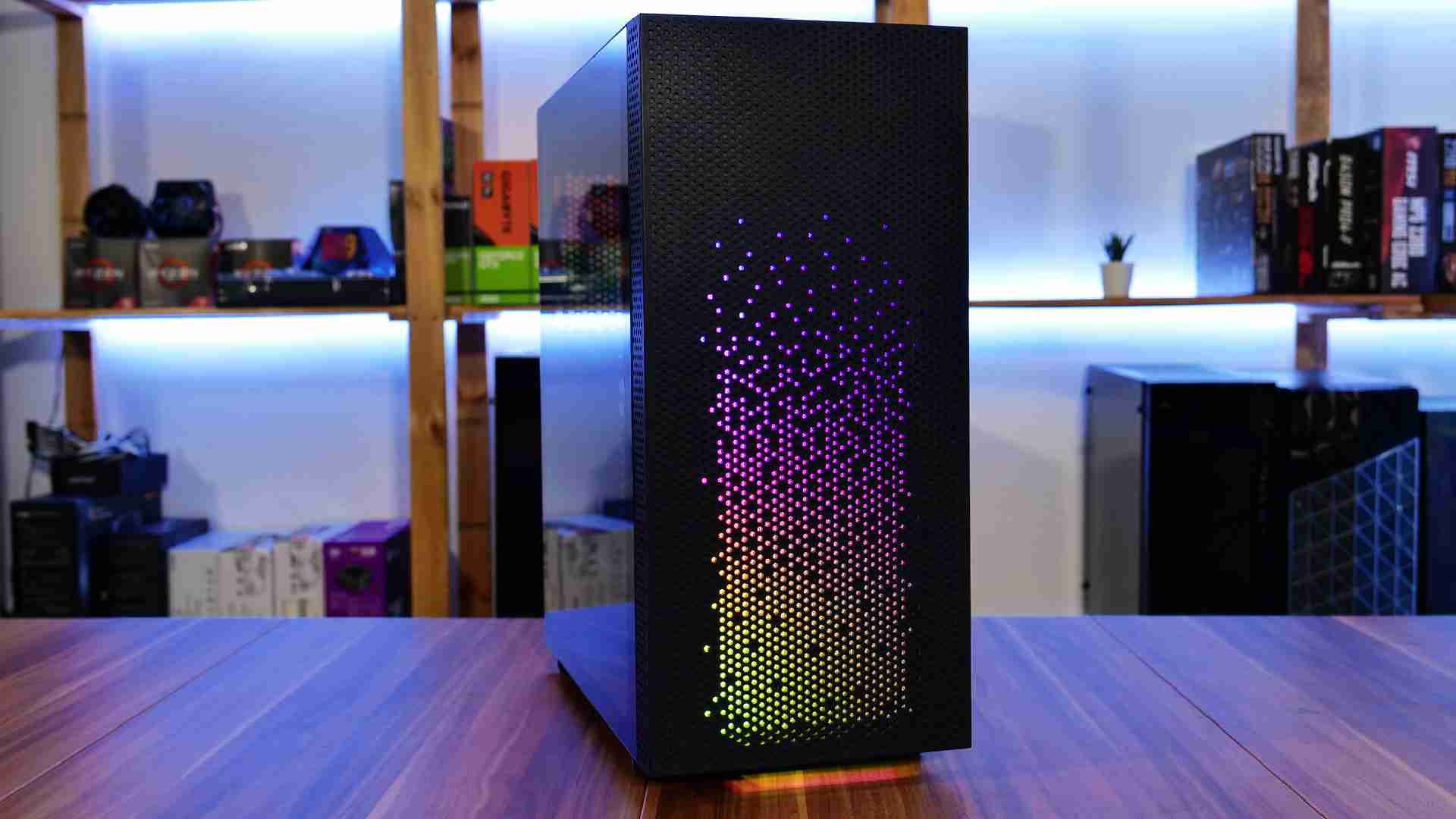be quiet! Light Wing 120 High Speed Review
Introduction
After many years of pure blackness, be quiet! finally went RGB. With the newest Light Wing PWM High-Speed, be quiet! tried their first attempt of high-performance RGB-infused fans. Let's find out how well they turned out!
Positive
- Excellent Performance
- Excellent Noise-to-Performance
- Excellent Build Quality
Neutral
- Included RGB Hub
Negative
- Should include a PWM Splitter
What's in the Box?

For this review, we will focus on the 120mm PWM High-Speed Tripple Pack which be quiet! is offering.
Except for the mandatory 3x Light Wing 120mm PWM High-Speed which the name is already suggesting, this multi-pack includes be quiet!'s first RGB hub.
But don't mistake the hub as an RGB controller, its sole purpose is to take an ARGB signal and spread it across multiple RGB devices.
For the rest of the box, we will also find the mandatory fan screws from every fan ever created.

Below we also included a summarized spec sheet:
| Name | be quiet! Light Wings 120mm PWM High-Speed |
| Size | 120x120x25mm |
| Speed | 2500RPM |
| Airflow | 53.3 CFM |
| Static Pressure | 2.6mm/H2O |
| Noise | 31db |
| Connection | PWM |
| Bearing | Rifle |
| RGB | 3-Pin ARGB |
Installation

Installing a pack of Light Wings is significantly easier if you know how painful a Silent Wing's mounting system was. Instead of any choices, the Light Wing's frame is coming completely assembled (or more in a single piece) and you directly start positioning the fan and attaching the screws.

From there, we can hook up the Fan to a PWM header and the ARGB to an ARGB header. Luckily, the ARGB header on the Fan is including a splitter at the end, so that we are able to install all of our fans to a single ARGB header on the motherboard.
Appearance

As expected, the most important change between the newest Light Wings and every previous be quiet! fan is the RGB imlpementation.
But we shouldn't completely ignore the rest of the fan. Just like any other be quiet! fan we have seen before, the Light Wings feature the same grooves on the fan wings while sharing the same level of rigidness and excellent build quality that we came to expect.

That being said, the RGB implementation is as be quiet! as it gets. With a thin semi-transparent ring around the fan, be quiet! used 18 LED's to create a controllable light around the fan. Additionally to that, be quiet! made sure to include 4x even thinner cut-ins on the backside of the fan to make the light visible from the other side. This creates a fan that looks great from both sides.
All in all the RGB implementation for the Light Wings is incredibly well executed. There is not a single light visible to the naked eye and the transitions between the individual LED's is very clean and creates a stunning light show.
Benchmark
No matter if RGB or not, a fan still needs to perform.

While performing our usual Benchmark and letting the Light Wings spin at 100% Fan speed, they were able to keep the 3700x at 42°C.
To our very surprise, the newest be quiet! Light Wings were able to outperform the "High-End" Silent Wings by 2°C.

Once the fan speed was reduced and the numbers normalized by noise, we were able to see that this behavior is not limited to "full-blast". No matter if the goal is a quieter operation or lower temperature, the Light Wings were always a tick ahead of the Silent Wings and generally just a better man for the job.
In the meantime, be quiet! also managed to outperform every other RGB Fan we've had so far, meaning that for now, the Light Wings are the overall best RGB fans we have in our Benchmark list.
Conclusion

When it comes to fan performance, the new be quiet! Light Wings PWM High-Speed are a real treat!
Not only did they manage to outperform every other RGB fan we had a look at until now, but they also managed to completely outperform their own "high-end" Silent Wings.
But this categorization is not limited to their cooling performance, the Noise-to-Performance ratio was just as good, proving that the Light Wings are the best Fans that be quiet! is offering at this moment.

For the fans specifically, they are exactly what we've expected from be quiet!.
A sturdy piece of clean and minimalistic design, but this time including a well-executed RGB implementation.

Although the inclusion of an ARGB Hub is a nice little addition. We can't help ourselves but wonder what exact purpose this hub is supposed to provide considering that each Fan's ARGB cable is including a build-in splitter, meaning that we are able to hook up every fan to a single ARGB Header on the motherboard without using the hub.
Ignoring the unnecessary RGB hub, we would have liked to see a PWM splitter included in the triple pack, or even better, a PWM splitter attached to each fan end. This becomes increasingly apparent as there are two ways to connect each cable to a single ARGB header but non for the PWM signal.

Looking at the fan as a whole there is nothing substantial to nag about except for a potential PWM splitter.
Due to the Light Wing's excellent performance paired with its best-in-class build quality, we can only recommend this fan.


be quiet! Silent Wing Pro 4 120 Review
be quiet!s newest Silent Wing 4 iteration promises excellent cooling performance while maintaining the Noise Level be quiet!
Read More
be quiet! Silent Wings 140 PWM Review
While the Silent Wings 140mm High-Speed was a best of a Case fan, we are going to take a closer look at its slower spinning P
Read More
Azza Celesta 340 Review
Azza-s newest Celesta 340 Case offers a unique little RGB Feature that may be just right for you. Lets dive deeper into the c
Read More
Gelid Stella Infinity Review
Gelid just updated their Stella fans. Now they come with an infinity mirror in the center and additional airflow notches on t
Read More